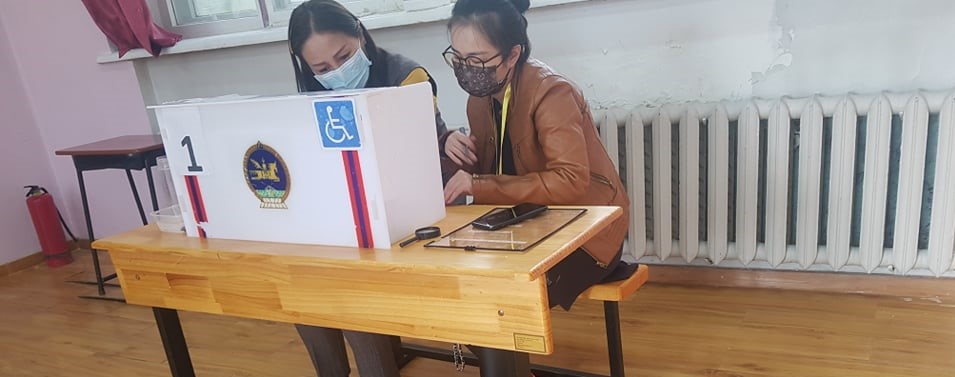Promoting Meaningful Participation of Mongolia’s Persons with Disabilities Community in the 2021 Presidential Election

Mongolia’s persons with disabilities (PWD) community remains one of the most marginalized in the country, with few opportunities for meaningful civic participation—an issue that historically received low levels of attention from both the public and policymakers. IRI has responded to this inequity by partnering with the Parent-Teacher Association of Mongolia (PTAM)—a local organization dedicated to improving educational quality for Mongolians—under the USAID-funded Strengthening Women and Youth Engagement in the Electoral and Political Processes in Mongolia program to raise awareness about electoral access for people with disabilities.
Although Mongolian law prohibits discrimination against people with disabilities and mandates equal access to public buildings, transportation, and other venues, implementation and enforcement of the law are not in fact equal. These barriers extend into the political sphere, as a lack of information in sign language contributes to decreased participation in political life for Mongolians with disabilities.
To improve PWD access to the electoral process, IRI and the Parent-Teacher Association of Mongolia developed Mongolia’s first virtual sign language glossary for election related terms. The glossary translates 130 frequently used election terms to Mongolian Sign Language and 80 terms to International Sign Language. The finished glossary was published on the Parent-Teacher Association of Mongolia and Mongolian General Election Commission websites.
In addition, IRI and PTAM-trained PWD facilitators led 10 virtual training sessions for 3,635 local election officials on inclusive electoral processes. These sessions taught officials to ensure poll center accessibility and safety for voters with disabilities ahead of the election.
IRI and its partner also organized Mongolia’s first-ever fully accredited PWD-led domestic election observation mission for the June 9 election. The Parent-Teacher Association of Mongolia trained twenty Mongolians with disabilities to conduct on-site observations at 50 polling stations, where they assessed each location’s accessibility. This provided PWD a unique democratic opportunity: to participate in the oversight of an election. Observer Batjargal Enkhnyam testified to the empowering impact of being a deaf election observer: “From this experience, I understood that [PWDs’] social integration starts…through participation.” An observation report will be published later this month that includes recommendations for improving electoral inclusiveness and accessibility.
Such initiatives to empower Mongolia’s PWD population have not gone unnoticed. For example, major media outlets Mongol HD and GoGo Mongolia bolstered public awareness of the barriers that people with disabilities face by reporting on the election observation mission. Meanwhile, Prime Minister L. Oyun Erdene met with PWD representatives in June to discuss accessibility concerns. He later directed the minister of labor and social protection to develop a three-year plan to address those concerns.
These encouraging developments highlight the important role that organizations like PTAM can play in building the capacity of Mongolians with disabilities to participate in democratic governance and press political institutions to better understand and respond to their needs. IRI will continue working with local partners to ensure that Mongolia’s democracy is truly representative of all citizens.
Top